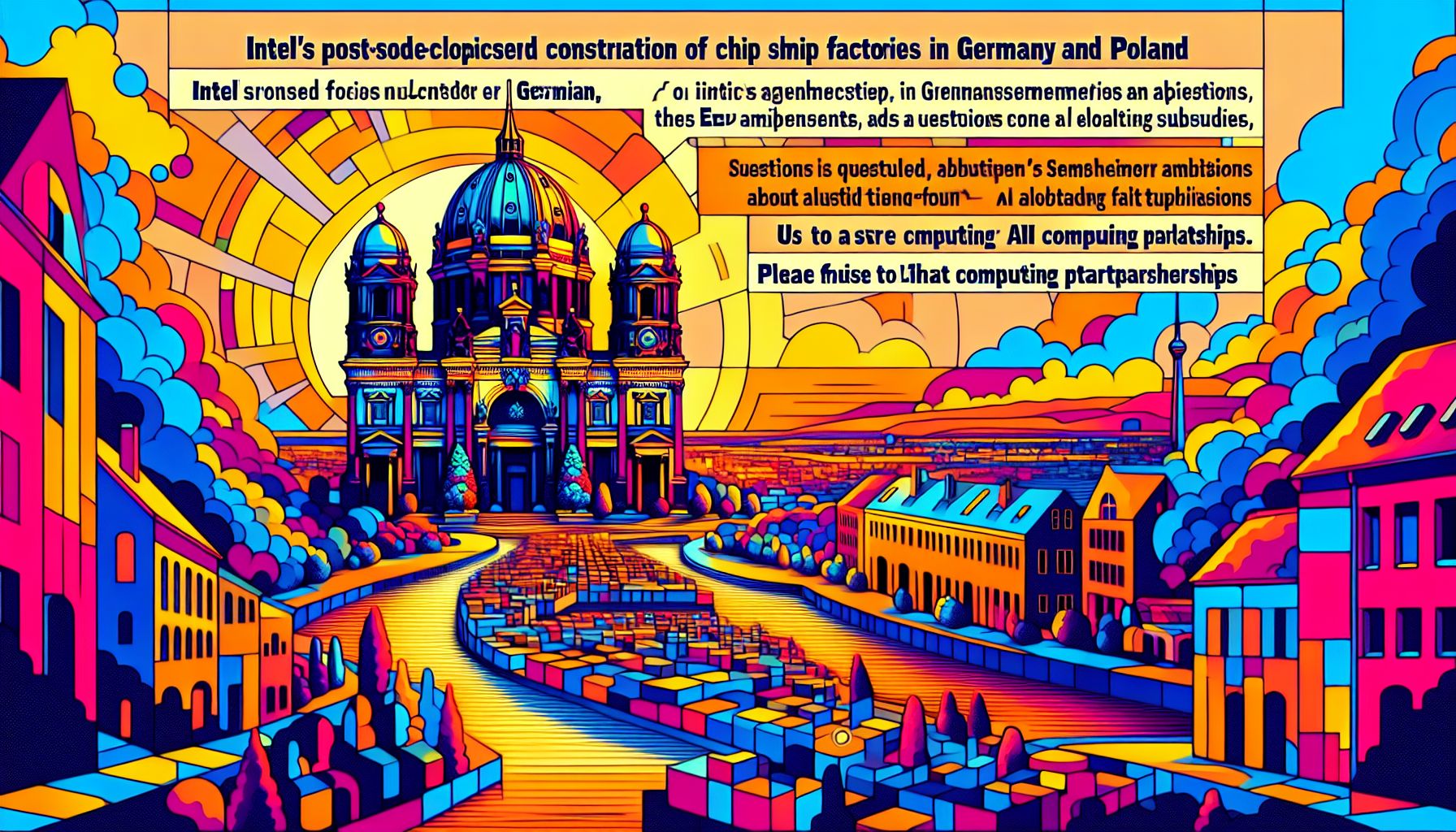Intel Delays European Chip Factories Amid Global Cost-Cutting Measures

Magdeburg, Wednesday, 18 September 2024.
Intel postpones construction of chip factories in Germany and Poland by two years, citing market conditions. The delay impacts EU’s semiconductor ambitions and raises questions about allocated subsidies. Intel aims to save $10 billion amid financial challenges and shifts focus to AI computing partnerships.
Impact on the European Semiconductor Industry
Intel’s decision to delay the construction of its chip factories in Magdeburg, Germany, and Poland is a significant setback for the European Union’s (EU) semiconductor ambitions. The EU has been striving to increase chip production within its borders to reduce dependency on Asian and American manufacturers. Intel’s delay, announced by CEO Pat Gelsinger, will likely cause a ripple effect, hindering the EU’s goal of bolstering its semiconductor industry through initiatives like the European Chips Act, which promised substantial subsidies for such projects[1][2].
Reasons Behind the Delay
The delay stems from Intel’s broader cost-cutting measures aimed at saving $10 billion. Pat Gelsinger pointed to market conditions as the primary reason for the postponement. Intel has been grappling with declining sales and mounting losses, necessitating drastic measures such as reducing its workforce by 15% and suspending dividends. The financial strain on Intel has forced the company to reassess its global operations, including its ambitious expansion plans in Europe[3][4].
AI Computing Partnerships: A Strategic Shift
While delaying the European projects, Intel is forging ahead with strategic partnerships in AI computing. Notably, Intel has secured Amazon AWS as a customer for its custom AI chips, known as fabric chips, which will be manufactured using Intel’s advanced 18A technology. This multi-year, multi-billion-dollar collaboration underscores Intel’s pivot towards AI computing, an area where it aims to compete with industry leaders like Nvidia. The partnership with Amazon is expected to enhance Intel’s manufacturing business and support its cost-saving initiatives[5][6].
The Road Ahead for Intel’s European Projects
The postponement of the Magdeburg and Poland factories has sparked discussions within the EU, particularly regarding the allocation of subsidies. German Finance Minister Christian Lindner has suggested redirecting the funds earmarked for Intel to address the country’s budget gap. This proposal has ignited debates among EU officials about the best use of financial resources amid Intel’s shifting priorities[7].
Conclusion: Navigating Financial and Technological Challenges
Intel’s decision to delay its European chip factories reflects the company’s broader strategy to navigate financial challenges and focus on emerging technologies like AI computing. While this move may hinder the EU’s semiconductor ambitions, it highlights Intel’s commitment to restructuring and adapting to market demands. As Intel continues to implement cost-saving measures and foster strategic partnerships, the global semiconductor landscape will be closely watching the company’s next steps[8].
Bronnen
- www.dutchitchannel.nl
- finance.yahoo.com
- www.oregonlive.com
- www.dw.com
- theedgemalaysia.com
- www.trendforce.com

